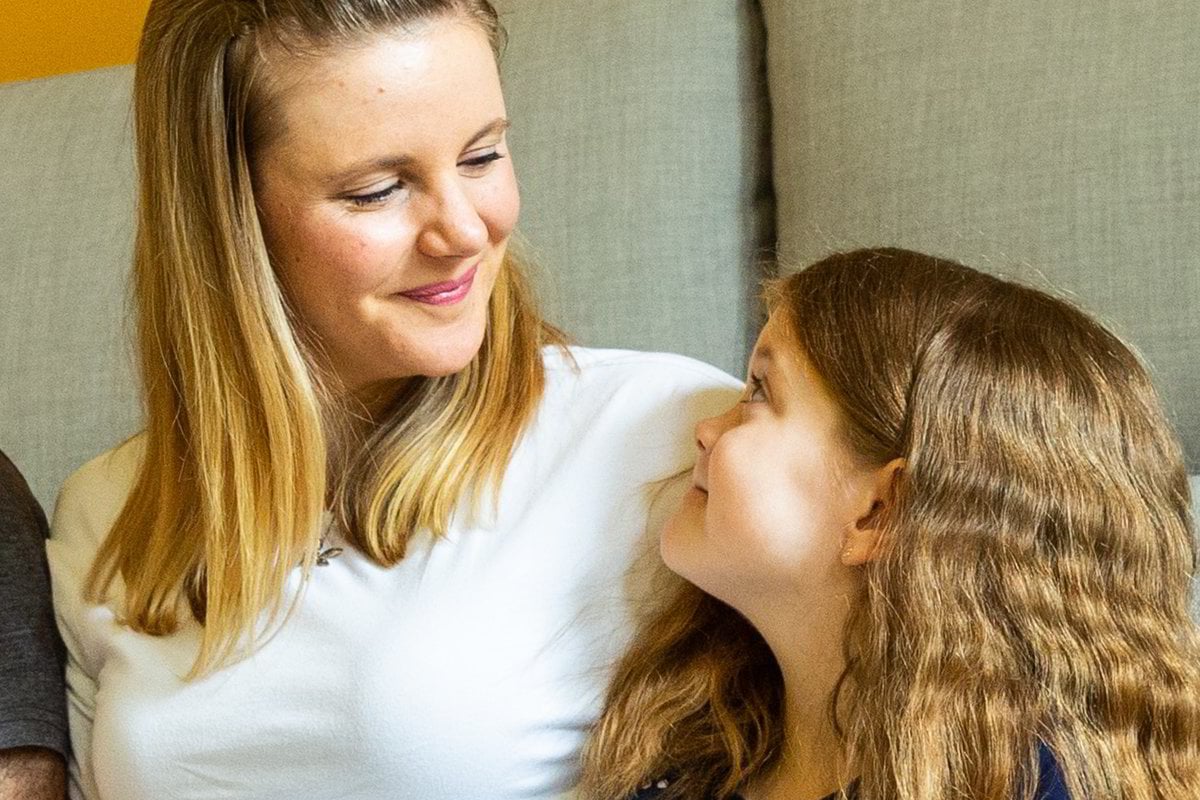
I knew well before I had kids that I wanted them to be able to talk to me about anything.
When I was growing up, sex was a taboo topic. I would say that was pretty normal for my [millennial] generation.
My parents always SAID I could talk to them about anything, but there were consequences when I did so I learned how to hide things instead.
Watch: Things Mums never say. Post continues below.
When I was 15, I got into an uncomfortable situation with a boy, and I tried telling my mum about it. I ended up grounded because I wasn’t where I was meant to be that night.
Sex was used as a way to have some control over my life, over my body (I wasn’t allowed to get my ears pierced!), and to feel like a grown up.
I know now that this was immature, but at the time, I just wanted to do grown up things.
This week I was talking to my mother’s group. Our daughters are six and one of them was in a flurry because her daughter had asked THE QUESTION.
“How do babies get into bellies?”
Our group chat was full of squeamish replies about dreading the day they have to have “the talk”.


Top Comments